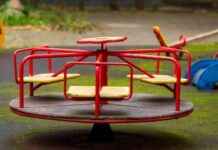**Critics Slam Plans for Bible Reading and Latin in Italian Schools as ‘Retrograde’**
**Who, What, Where, When, Why, and How**
Education in Italy is set for a major overhaul as controversial plans to reintroduce Bible reading, Latin, and poetry memorization in schools have sparked heated debates. The proposal, unveiled by Education Minister Giuseppe Valditara, aims to revamp the national curriculum guidelines, drawing criticism for being perceived as “retrograde” and “nostalgic.” These changes are expected to affect children aged three to 14 and are scheduled to take effect from the 2026/2027 school year.
**The Reintroduction of Bible Reading and Latin**
In a recent interview with the right-wing newspaper Il Giornale, Minister Valditara emphasized the importance of instilling a “taste for reading” and enhancing writing skills among students. While the specifics of incorporating the Bible into primary school curricula were not explicitly outlined, Paola Frassinetti, the education ministry’s undersecretary, indicated that Christianity’s sacred text would have a presence due to its profound influence on literature, music, and art across various civilizations.
Latin is poised to make a comeback as an elective subject in middle schools, accompanied by history lessons that prioritize Italy, Europe, and the western world without any ideological bias, according to Valditara’s statements. The minister also endorsed the revival of memorizing poetry, starting with simpler texts like nursery rhymes and progressing to more complex works such as classical epics and Greek mythology.
**Cultural Enrichment Through Literature and Poetry**
The proposed reading lists for students include works by renowned Italian poets and writers from the 19th and 20th centuries, like Giovanni Pascoli and Umberto Saba. Additionally, the curriculum may feature international authors such as Stephen King to provide a diverse literary experience. While some have applauded Valditara’s initiatives as bold and visionary, political opponents have expressed strong disapproval.
**Criticism and Opposition**
Critics, including Elly Schlein from the Democratic party and members of the Five Star Movement, have condemned Valditara’s educational plans as regressive and out of touch with modern times. Schlein accused the government of mistaking authoritarianism for authority and suggested that Valditara’s approach harkens back to authoritarian practices of the past.
**Student Protests and Public Reaction**
Students have also voiced their dissent, protesting against the minister’s proposals during his visit to a school in Lecce, Puglia. They raised concerns about the state of education funding and criticized the government’s focus on discipline rather than addressing pressing issues within the school system. Amidst the ongoing debates and demonstrations, the future of Italy’s education landscape remains uncertain, with diverse opinions shaping the discourse surrounding these controversial changes.







